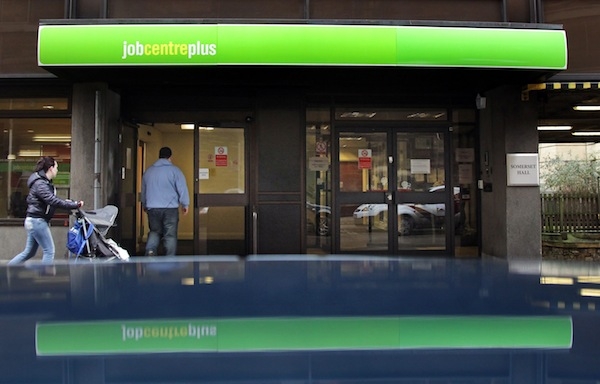By some quirk of planning, Channel 4 and BBC Two ended up showing two very similar programmes last night about the mess of the assessments that determine whether a sick or disabled person is able to work. The most haunting of the stories told last night was Panorama’s case study of a man who had died of heart failure while contesting a decision declaring him fit to work. The assessor who had initially referred Stephen Hill to a doctor for urgent medical attention was the same person who paradoxically declared him fit to work.
A potted history of incapacity benefit is not kind to either Labour or the Conservative party. The graph below shows that the bill for this benefit rose steeply through the late 1980s and early 1990s under the Conservative government. Hundreds of thousands of people left unemployed by the collapse of the coal mining industry were shifted from official unemployment figures to the incapacity benefit claimant count.
Labour made some slow progress in reducing the bill, but it also introduced the assessments featured last night. They were piloted by James Purnell in 2008, and continued by the coalition post-2010 as IB claimants are migrated to the new employment and support allowance.
The most telling figure about these assessments, which are carried out by private firm Atos Healthcare, is not that 40 per cent of those deemed to fit to work appeal the decision: that is unsurprising as the system is examining claimants who may not feel ready to return to work, even if there is no medical reason for them to continue claiming sickness benefits. What is revealing is that of those appeals, roughly 40 per cent are successful. That a significant proportion of Atos’ decisions are found to be incorrect suggests that the assessment process is not working.
Labour MP Tom Greatrex has a Westminster Hall debate on the work capability assessment on 4 September. He points to the cost to the public purse, not just of the reassessments, but also of the volume of appeals: Atos Healthcare holds a £100 million contract to assess benefit claimants, and the appeal tribunals cost the taxpayer £50 million. Greatrex’s position is more nuanced than his colleague John McDonnell, who has tabled an early day motion calling for the assessments to be scrapped altogether. Instead, he says: ‘I do not have a problem with the principle of an assessment. But what I would suggest is that there is some sort of penalty clause for Atos if it gets more than a certain level of assessments wrong.’ He also wants more details on whether the contract with Atos contains any targets or a suggestion of how Atos’ performance is measured. The Work and Pensions department has so far refused to reveal that contract in full.
This shouldn’t just be an issue that worries opposition MPs. It is vital that ministers ensure the work capability assessment is fit for purpose. If the system continues to display such obvious flaws, it risks undermining the argument for rightly moving those who are genuinely fit to work off sickness benefits. It is not compassionate conservatism to leave a healthy person languishing on benefits. But neither is it the ‘tough love’ that Chris Grayling tried to sell to Panorama last night to fail to provide a test that effectively assesses fitness to work, or to fail to hold the firm carrying out those tests to account. That’s not tough loving, that’s just tough.
UPDATE: Chris Grayling has just contacted me to put the department’s side of the story across. This is what he said:
‘We have always been clear that this is a very difficult and sensitive process, but it is essential if we are to avoid consigning to a life on benefits people who could do much more. The trouble with these two programmes is that they presented a totally partisan view.
‘Panorama point blank refused to interview any of the specialist Work Programme providers who are there to provide help for claimants to get back into work. Dispatches sent us selective quotes from their filming but refused to let us see the full transcripts to see the context of the comments. It was obvious that both had made up their mind what they were going to say before they even started.
‘All of this just serves to irresponsibly heighten concerns about a process that is genuinely about saving lives and not saving money.’








Comments